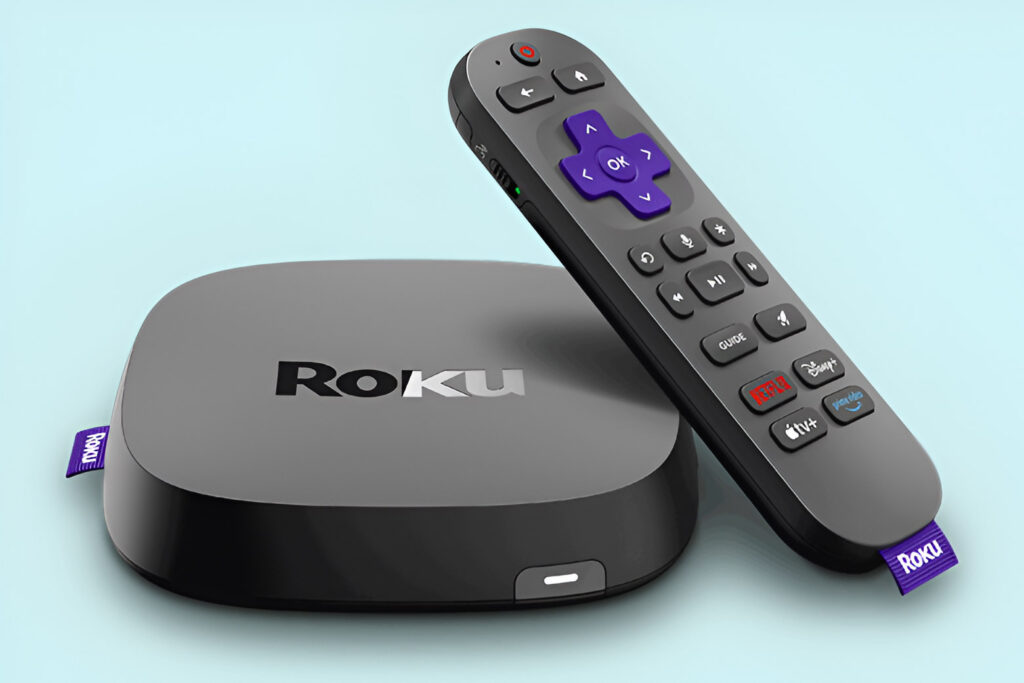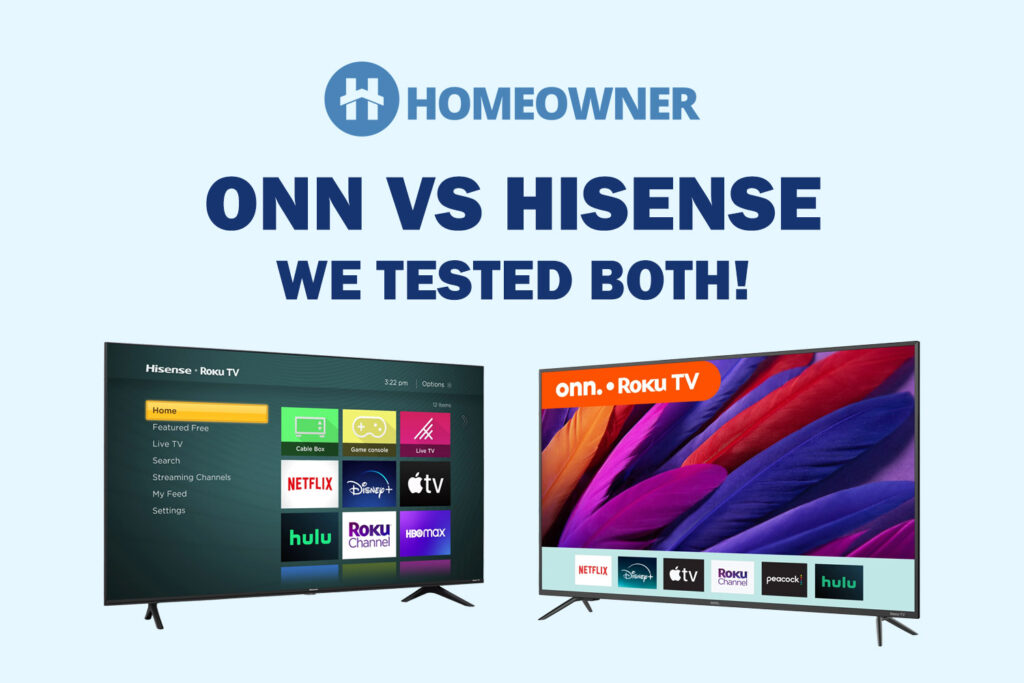Having a fast, reliable home internet connection is a modern-day necessity. However, if you live in a rural area, you know that it can be a struggle to find a solid internet provider. Wireless internet helps bridge this gap. Options like cellular, satellite, and fixed wireless internet make it easier to stay connected, especially in places where cable or fiber internet can't reach.
But with so many providers and plans out there, figuring out the best fit can be overwhelming. We’ll cover everything you need to know about wireless internet: the types available, the top providers, and tips to help you decide which is the right choice for your home.
Check out our 2025 Guide To the Best Internet Providers to find the best broadband for your home.
Top 7 Wireless Internet Providers
| Provider | Estimated Price (Monthly) | Speeds | Type | Best For |
|---|---|---|---|---|
| T-Mobile 5G Home | $40–$60 | 72–245 Mbps (download) | Cellular | Rural areas, no contracts |
| Verizon 5G Home | $60–$80 | 50–1,000 Mbps (download) | Cellular | High-speed, 5G Ultra Wideband areas |
| EarthLink | $59.95–$159.95 | Up to 100 Mbps | Cellular/Satellite | Variety of wireless types |
| Nomad Internet | $79.95–$149.95 | Up to 200 Mbps | Cellular | RVs, rural, and mobile households |
| Starlink | $50–$500 | 50–220 Mbps (download) | Satellite | Remote areas, global coverage |
| HughesNet | $54.99–$124.99 | Up to 100 Mbps | Satellite | Basic browsing, casual streaming |
| Rise Broadband | $25–$45 | 25–250 Mbps | Fixed Wireless | Rural fixed internet, lower latency |
What Is Wireless Internet?

Wireless internet is a type of internet that provides connectivity through various wireless means, without the need for physical cables. Typically, residential internet relies on copper or fiber-optic wires. But wireless internet skips the wires altogether to reach places lacking in internet infrastructure, so it’s a popular option for rural and remote areas.
There are a few main types of residential wireless technology available:
- Cellular
- Satellite
- Fixed Wireless
Each works a little differently, so before we get into the top wireless internet providers, let’s break down how these technologies work to help you understand your options.
Want to save when buying internet equipment? Checkout:
- EarnIn: Borrow up to $750 against an upcoming paycheck!
- Capital One Shopping: Automatically apply available coupon codes online to find deals and save!
Cellular
Cellular internet is a wireless internet option that uses signals from cell towers to deliver home connectivity. It works by connecting your router over the air to the nearest cell tower, so there's no need for traditional underground wires or satellite dishes.
Pros
- Great rural coveragernrnLow latency
Cons
- Speeds vary greatly depending on proximity to cell towerrnrnService can be spotty
5G internet from providers like T-Mobile and Verizon is the latest cellular internet technology, offering faster speeds and lower latency than its 4G LTE predecessor. Speeds range widely depending on your location, but 5G can often hit 100-1,000 Mbps, so it works well for streaming, gaming, and more. Many providers are also rolling out C-Band technology, which uses specific radio frequencies to make 5G even faster and more reliable.
While 5G coverage is expanding rapidly, rural areas may still face challenges in accessing it. It all depends on the type of cellular infrastructure available in your location.
Satellite
Satellite internet is designed for those living in rural or remote areas where even cell towers are out of reach. Providers like HughesNet and Starlink use satellites in orbit to deliver an internet connection directly to your home. All you need is a dish installed on your roof or property, and you're ready to go.
Pros
- Available virtually anywhere with a clear view of the skyrnrnGreat for RVs or travel
Cons
- High latencyrnrnExpensive equipment costs
The best thing about satellite internet is its ability to reach places where other internet types can’t. However, it’s not without its downsides.
Weather conditions like heavy rain or clouds can disrupt the signal, and speeds typically hover between 15 and 100 Mbps, though Starlink offers plans that can reach up to 1,000 Mbps in ideal conditions.
️ Stay ahead of bad weather! Use a home weather station to track incoming storms that might disrupt your wireless signal.
Fixed Wireless
Fixed wireless internet is a unique type of wireless connection that works by sending signals from a nearby access point directly to an antenna that’s typically installed on your home’s roof. Providers like Rise Broadband are popular in this space, capable of speeds ranging from 25 Mbps to 250 Mbps.
Pros
- Decent speedsrnrnLower latency than satellite
Cons
- Limited availabilityrnrnBad weather and obstructions can interrupt connection
Since it doesn’t rely on wires or cables, fixed wireless internet is quicker and easier to install than cable or fiber options. However, just like with a satellite dish, the antenna needs a clear line of sight to the nearest tower, meaning obstructions like trees or buildings can cause disruptions.
Fixed wireless is also known for having much lower latency than satellite internet, so it's better for activities like video calls or online gaming.
Best Wireless Internet Providers in 2025
T-Mobile 5G Home

Founded in 1994, T-Mobile has grown to become a household name and the third-largest wireless carrier in the United States. Headquartered in Bellevue, WA, the company has a long-standing reputation for innovation in the telecommunications space.
Pros
- No annual contracts
- Unlimited data
- Straightforward, affordable pricing
Cons
- Service can be spotty
- Slow speeds in areas with less coverage
- Offers only one internet plan
Highlights
Available Speeds: 72-245 Mbps download speed / 15-31 Mbps upload speed
Price Range: $40-60
Data Cap: None
Contract Required: No
BBB Rating: A
In 2021, T-Mobile stepped into the home internet market with its 5G Home Internet service, which utilizes T-Mobile's expansive 5G network to provide high-speed internet access to millions of households. With over 4.2 million subscribers to date, T-Mobile Home Internet continues to expand its footprint.
Why We Like T-Mobile 5G Home
T-Mobile 5G Home Internet is as straightforward as it gets, offering a single plan with no contracts, hidden fees, or data caps. Its simplicity and affordability make it an appealing option for households looking to escape the complexity of traditional ISPs.
Internet service operates on T-Mobile’s robust 5G network, which is capable of delivering download speeds of 72-245 Mbps, with 15-31 Mbps upload speeds. The included 5G Gateway device makes setup a breeze, and there’s no need to worry about purchasing or renting extra equipment.
Plans and Pricing
T-Mobile keeps it simple with one plan, making pricing predictable and easy to understand. However, there are internet discounts offered to T-Mobile customers who also use the company's mobile services.
| Plan Name | Monthly Price | Speeds (Download/Upload) | Data Cap | Contract Required |
|---|---|---|---|---|
| Internet Only | $60 | 72-245 Mbps / 15-31 Mbps | None | No |
| With Voice Line | $50 | 72-245 Mbps / 15-31 Mbps | None | No |
| With Premium Plan | $40 | 72-245 Mbps / 15-31 Mbps | None | No |
No matter which type of customer you are, the service includes a 5G Wi-Fi Gateway device with free shipping, no contracts, and no equipment fees. Plus, T-Mobile sweetens the deal with a 15-day trial period through its Test Drive program. If you’re unsatisfied within the first two weeks, you can get a full refund.
Internet Only: $60/mo.
This plan is for customers who sign up for home internet only, without bundling other T-Mobile services.
T-Mobile Customers: $50/mo.
Existing T-Mobile customers with a phone plan like Magenta®, Essentials, or Go5G get a $10 discount on the standard internet price.
T-Mobile Customers with Premium Plans: $40/mo.
Customers with premium plans like Go5G Next, Go5G Plus, or Magenta MAX receive a $20 discount off the internet-only price.
Read the full T-Mobile 5G Home Internet review >>
Verizon 5G Home
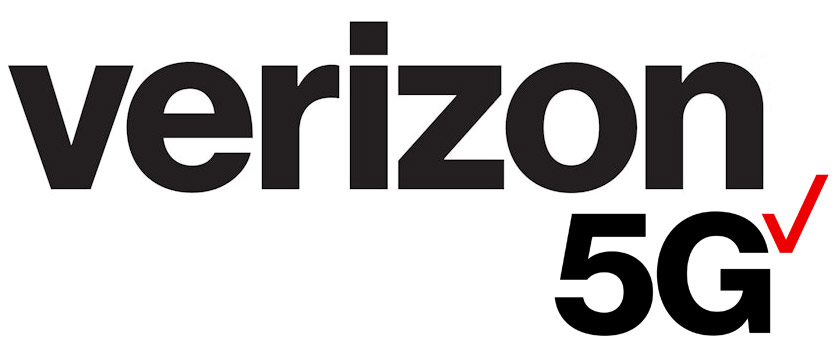
Verizon has been one of the top telecommunications companies for decades, known for its reliable cellular services and commitment to innovation. Now, Verizon is carving a space for itself in the home internet market with both fiber and wireless options, including its growing 5G and LTE Home Internet services.
Pros
- Straightforward, transparent pricing
- Unlimited data
- No contracts or equipment fees
- Convenient wireless setup
Cons
- Not available everywhere
- Internet speeds can be inconsistent and are not guaranteed
- Relatively slow upload speeds
Highlights
Available Speeds: 50-1000 Mbps download speed / 5-75 Mbps upload speed
Price Range: $60-80/month
Data Cap: None
Contract Required: No
BBB Rating: A+
In 2018, Verizon began rolling out its home internet offerings, starting in select cities and gradually expanding. Verizon became a leader in wireless home internet with the launch of its 5G Ultra Wideband network in 2022. Today, Verizon Home Internet serves over 3 million customers nationwide.
Why We Like Verizon 5G Home
Verizon 5G Home Internet combines cutting-edge technology with the simplicity of no annual contracts or data limits and a five-year price lock. The 5G Ultra Wideband technology offers impressive download speeds up to 1,000 Mbps, which can handle everything from streaming in 4K to online gaming and working from home.
However, location is key when it comes to Verizon’s home internet performance. In areas with strong 5G Ultra Wideband coverage, users can enjoy speeds that rival some fiber plans. But in locations without 5G access, LTE speeds can feel a bit sluggish, at only 50 Mbps.
👉 Related reading: Can You Use a Roku Without Internet?
Plans and Pricing
Verizon offers both 5G and LTE home internet plans that include a free wireless router, unlimited data, no annual contracts, and a 30-day money-back guarantee.
| Plan Name | Monthly Cost | Download Speed | Bundle Savings (w/ Mobile Plan) | Autopay Savings |
|---|---|---|---|---|
| 5G Home | $60 | 50-300 Mbps | $15/month | $10/month |
| 5G Home Plus | $80 | 85-1,000 Mbps | $25/month | $10/month |
| LTE Home | $60 | Up to 50 Mbps | $15/month | $10/month |
| LTE Home Plus | $80 | Up to 50 Mbps | $25/month | $10/month |
5G Home – $60/mo.
Verizon's basic 5G home internet plan offers download speeds between 50 to 300 Mbps and upload speeds between 5 to 20 Mbps. If you bundle this plan with a Verizon mobile plan, you can save $15 per month.
5G Home Plus – $80/mo.
The 5G Home Plus plan gives you internet download speeds between 85 to 1,000 Mbps, with upload speeds between 10 to 75 Mbps. This plan also includes Whole Home Wi-Fi and Verizon Cloud unlimited storage. You can save an extra $25 by bundling with a mobile plan.
LTE Home – $60/mo.
With the LTE Home plan, you can get up to 50 Mbps download speeds. You can save an extra $15 per month by bundling with a mobile plan.
LTE Home Plus – $80/mo.
The LTE Home Plus plan offers the same internet speeds as the LTE Home but includes added perks like Whole Home Wi-Fi and Verizon Cloud Unlimited storage. You can also save $25 per month by bundling with a mobile plan.
Read the full Verizon 5G Home review >>
EarthLink

EarthLink was one of the original internet giants, founded in 1994 in Atlanta, GA. Back then, it was a major player, rivaling companies like America Online. Fast forward to today, and EarthLink has come a long way, now offering modern internet services like fiber, as well as wireless cellular and satellite internet services.
Pros
- Flat-rate pricing with no price hikesrnrnFiber internet available in certain locationsrnrnUnlimited data for fiber plans
Cons
- High pricesrnrnAnnual contract required for most plansrnrnSpeeds vary by location
Highlights
Available Fiber Speeds: 100 Mbps – 5 Gbps
Available Wireless Speeds: up to 100 Mbps
Available Satellite Speeds: up to 100 Mbps
Service Area: All states except Alaska and Hawaii
Price Range: $59.95-$189.95
Data Cap: Unlimited for fiber internet; 100 GB – Unlimited for wireless; 15 GB – 300 GB for satellite
Contract Required: Annual for fiber or satellite; Monthly or annual for wireless
BBB Rating: A+
Acquired by Thrive Capital in 2019, EarthLink has broadened its horizons by partnering with big telecom names like AT&T, Verizon, and Frontier. This collaboration helps EarthLink deliver internet service to over 5 million homes across 78% of the United States. It's a flexible option for customers living in both urban and rural areas.
Why We Like EarthLink
EarthLink partners with other major internet companies to bring reliable internet to underserved areas. This also allows them to offer many different types of services, ranging from fiber to cellular wireless to satellite, so it's nice to have options.
While Earthlink's pricing is a little bit on the high side for the speeds you get (up to 100 Mbps for its wireless options), it's straightforward and consistent. Earthlink does not hike the price after the first year or two, unlike many ISPs.
Plans and Pricing
EarthLink offers fiber, wireless (cellular), and satellite internet. You can read about their fiber internet service in our full Earthlink review, but we will just focus on their cellular and satellite internet offerings here.
| Service Type | Available Speeds | Data Cap | Contract Requirement | Price Range |
|---|---|---|---|---|
| Fiber Internet | 100 Mbps – 5 Gbps | Unlimited | Annual | $59.95 – $189.95 |
| Wireless Internet | Up to 100 Mbps | 100 GB – Unlimited | Monthly or Annual | $59.95 – $159.95 |
| Satellite Internet | Up to 100 Mbps | 15 GB – 300 GB | Annual | Varies by location |
EarthLink’s satellite plans offer speeds up to 100 Mbps with data caps ranging from 15 GB to 300 GB per month. Pricing varies by location, and you can choose between purchasing or leasing the required equipment.
With satellite, you are required to sign an annual contract. You can choose between an annual or monthly contract for cellular wireless plans.
Instead of organizing their wireless plans by speed, which can vary, up to 100 Mbps, depending on your location, Earthlink structures plans by data caps:
100 GB Wireless Plan – $59.95/mo.
This plan is perfect for light users who browse social media, check emails, and watch a few YouTube videos.
150 GB Wireless Plan – $84.95/mo.
This mid-tier plan is ideal for individuals or couples with moderate internet needs, like TV streaming and online shopping.
200 GB Wireless Plan – $109.95/mo.
The 200 GB plan is a great fit for remote workers or small families who need a reliable connection for video calls and light gaming.
300 GB Wireless Plan – $159.95/mo.
Designed for more active households, the 300 GB plan can support frequent streaming and gaming on multiple devices.
Unlimited Wireless Plan (throttled) – $79.95/mo.
If you need peace of mind without worrying about data limits, this plan might be for you. However, keep in mind that speeds are capped at 25 Mbps after 300 GB of usage.
Read the full Earthlink review >>
Nomad Internet
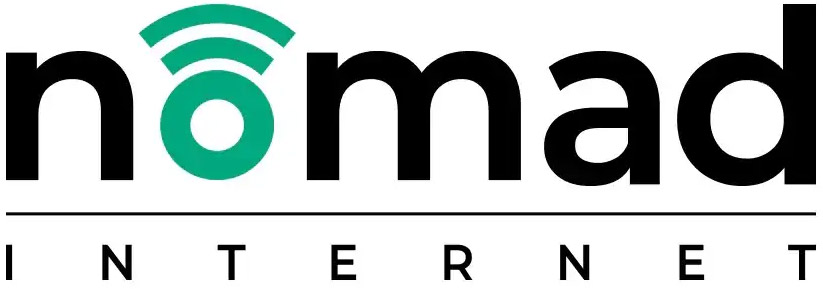
Nomad Internet was born out of the mission to connect the unconnected. Founded in 2017 and headquartered in Texas, the company started with a focus on improving Wi-Fi in RV parks. Over time, it expanded to offer a full suite of internet services designed specifically for rural communities, travelers, and off-the-grid adventurers.
Pros
- Internet access just about anywhere in the United StatesrnrnNo contractsrnrnUnlimited data
Cons
- Speeds are not guaranteedrnrnExpensive upfront costsrnrnThird-party networks can potentially deprioritize data
Highlights
Available Speeds: 40-200 Mbps
Price Range: $79.95 – $149.95/mo
Data Cap: None
Contract Required: No
BBB Rating: N/A
By leveraging cutting-edge cellular technology like 5G and C-Band, Nomad delivers reliable internet in areas where traditional options fall short, across all 50 states. Whether you’re living in a remote farmhouse or traveling cross-country in an RV, Nomad Internet offers flexible, reliable solutions to keep you online.
Why We Like Nomad Internet
Nomad Internet is a unique option for those living life off the beaten path. With no contracts, data caps, or hidden fees, Nomad Internet is especially popular among RVers, digital nomads, and rural households that need consistent access to the web without all the hassle of traditional providers.
Nomad’s pricing is competitive with similar services like Starlink Roam, and its flexibility makes it a solid choice for those who prioritize mobility and ease of use over traditional wired internet options. Plus, their 14-day risk-free trial means you can test it out before fully committing.
Plans and Pricing
Nomad Internet offers a variety of plans tailored to different needs. All plans include unlimited data, no contracts, and a 14-day money-back guarantee.
| Plan | Price | Download Speed | Best For |
|---|---|---|---|
| Nomad 300GB Rural Plan | $79.95/Mo | Up to 40 Mbps | Basic home use, limited device support |
| Nomad Unlimited Plan | $99.95/Mo | Up to 100 Mbps | HD streaming, moderate gaming |
| Nomad Unlimited Ultra Plan | $149.95/Mo | Up to 200 Mbps | Heavy internet usage, serious gaming |
Nomad 300GB Rural Plan – $79.95/mo.
Designed for light users, this plan offers speeds up to 40 Mbps. It’s best for basic internet tasks like browsing and checking emails. Note: Compatible only with the Nomad Rural One router.
Nomad Unlimited Plan – $99.95/mo.
This plan supports download speeds up to 100 Mbps, good for streaming HD videos and light online gaming.
Nomad Unlimited Ultra Plan – $149.95/mo.
For heavy users, this plan offers download speeds up to 200 Mbps. It’s perfect for serious gamers, remote workers, or households with multiple devices connected simultaneously.
Read the full Nomad Internet review >>
Starlink
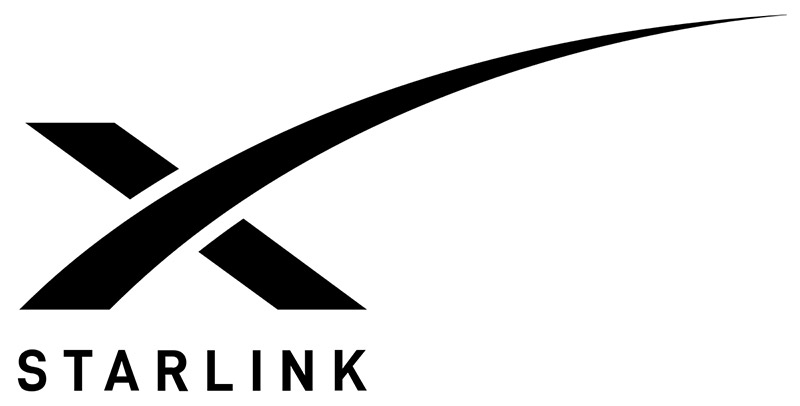
Starlink has revolutionizedsatellite internet by bringing high-speed connectivity to even the most remote corners of the world. Founded in 2015 and operational since 2019, Starlink has launched thousands of low-earth orbit satellites as part of its growing global network. Unlike traditional satellite internet, which relies on a few geostationary satellites, Starlink’s “constellation” of low-orbiting satellites provides faster, more reliable service with significantly lower latency.
Pros
- Relatively fast speeds for rural connectivity
- Extremely low latency
- Unlimited data
- Offers mobile plans for RVs/campers and boats
Cons
- Expensive equipment costs
- Slower speeds than fiber internet and most cable internet providers
- Bad weather can affect internet connection
Highlights
Available Speeds: 25-220 Mbps download speed, 8-25 Mbps upload speed
Price Range: $35-$1000 per month
Data Cap: Unlimited
Contract Required: No
BBB Rating: Not Accredited
Today, Starlink is available in most areas around the globe, and one of the best options for rural households, people living off-grid, and travelers who need a dependable internet connection.
Related: Is Starlink Good for Gaming?
Why We Like Starlink
Starlink has been a game-changer for satellite internet, thanks to its low-latency technology and nearly worldwide availability. Unlike traditional satellite providers, which rely on satellites orbiting 22,000 miles above the Earth, Starlink uses low-earth orbit satellites positioned just 340 miles above the planet. This allows for faster response times with lower latency (around 25-60ms) for improved online gaming and video calling.
One of Starlink’s biggest strengths is its accessibility, providing reliable internet where other options are limited or non-existent. Speeds are significantly higher than standard satellite internet, ranging from 40-220 Mbps download speed, with 8-25 Mbps upload speeds.
Plans and Pricing
Starlink offers a variety of plans to cater to different needs, from home users to travelers and businesses. All plans are contract-free and all (except for the Mini plan) include unlimited data. There's also a 30-day trial period, so you can try it out risk-free.
| Residential | Roam | Boat | |
|---|---|---|---|
| Price | $35-$120/month | $50–$165/month | $250–$1,000/month |
| Download Speed | 50–250 Mbps | 50–220+ Mbps | 50–220+ Mbps |
| Upload Speed | 5–25 Mbps | 5–25 Mbps | 5–25 Mbps |
| Data/Speed Caps | None | None | None |
| Data | Unlimited | 50 GB–Unlimited | 50 GB–1 TB |
| Best For | Fixed home internet | Traveling or remote work | Maritime, emergencies, or remote work |
Residential – $35-$120/month
Residential plans from Starlink provide internet for fixed locations like homes or cabins. Starlink offers higher speeds and unlimited data compared to other satellite services.
Starlink has two Residential plans, but the lower-cost option is currently only available in specific regions outside the U.S.
Residential Lite – $35/month
This plan offers download speeds between 50 and 100 Mbps. It's the more affordable option but is limited to select regions outside the U.S.
Residential – $120/month
This plan delivers download speeds of 150 to 250 Mbps. It has wider availability and faster speeds compared to Residential Lite.
Residential plans are a reliable choice for home internet, especially for remote locations where cable or fiber isn't an option. Most users experience download speeds above 100 Mbps, although speeds may vary due to location and weather interference.
Roam – $50-$165/month
Roam plans support travelers needing internet access on the move.
Roam 50 GB – $50/month
Provides 50 GB of data and works within the country tied to your account. Internet speeds are functional up to 100 mph, suitable for use in vehicles. The plan also supports up to 12 miles of coastal coverage, but anything beyond that requires a Boat plan.
Roam Unlimited – $165/month
Offers unlimited data and includes the same features as Roam 50 GB. This plan is great for frequent travelers. Starlink allows users to pause service monthly, so you only pay when needed.
Boat – $250-$1,000/month
Starlink's Boat plans are designed for ocean use. These plans offer unlimited distance coverage on water and can also work on land within your country.
Boat 50 GB – $250/month
Includes 50 GB of data, providing reliable service for ocean travelers.
Boat 1 TB – $1,000/month
Offers 1 TB of data, network priority, and premium support.
Both plans provide broad coverage and the option to pause service when not needed.
Equipment Costs
| Kit | Price | Features | Best For |
|---|---|---|---|
| Mini | $600 | Smallest Starlink, integrated WiFi, portable design fits in a backpack or suitcase. | Travelers, Roam users |
| Standard | $349 | Includes Starlink, cables, kickstand, router; supports streaming, gaming, and video calls. | Residential users, general internet usage |
| Standard Actuated | $600 | Motorized dish for optimized connections, enhanced reliability for work-from-home setups. | Residential users, small businesses |
| High Performance | $2,500 | Handles hot/cold weather, supports more satellite connections, mounts available separately. | Businesses, extreme weather conditions |
| Flat High Performance | $2,500 | Flat dish design, wider sky visibility, improved GPS, 135° field of view, ideal for maritime use. | Boat travel, harsh weather, dense trees |
Starlink equipment, which includes your satellite dish, is a separate, one-time expense. Here are the options:
- Mini – $600
- Standard – $349
- Standard Actuated – $600
- High Performance – $2,500
- Flat High Performance – $2,500
Read the full Starlink review >>
Hughesnet

HughesNet has been bringing satellite internet to rural and remote areas for decades. Headquartered in Germantown, Maryland, HughesNet has built a reputation as a reliable option for communities where traditional internet options like fiber or cable aren’t available.
Pros
- Wide availability in rural and remote regionsrnrnNo hard data capsrnrnPromotional pricing for the first year
Cons
- High latencyrnrnRequires 2-year contractrnrnSteep price hikes after the first 12 months
Highlights
Available Speeds: 15-100 Mbps download speeds, 5 Mbps upload speeds
Price Range: $54.99-$99.99/mo
Data Cap: None, though speed will slow down
Contract Required: Yes, 24-month contract required
BBB Rating: A+
Their technology relies on geostationary satellites to deliver internet service to homes and businesses. Recently, HughesNet has launched its Jupiter satellite system – including the newest Jupiter 3, an advanced satellite that increases capacity and speeds. The company also introduced its Fusion plan, which combines satellite and wireless technology to reduce latency, which is a significant improvement for satellite internet users.
Why We Like Hughesnet
HughesNet offers nationwide availability, and is a good choice for customers living in remote or rural households – especially those relying on outdated solutions like dial-up. If you need a reliable connection for basic browsing, checking emails, or casual streaming, HughesNet gets the job done. However, speeds top out at 100 Mbps, with upload speeds capped at around 5 Mbps, which isn't ideal if you live in a heavy internet usage household.
Still, Hughesnet's new Fusion plan makes Hughesnet more competitive against rivals like Starlink, since it blends satellite and wireless technology to reduce the high latency that has long been a drawback of satellite internet. Another bonus is that plans offer unlimited data, but like with Starlink, speeds slow down after you hit your monthly priority data cap.
Plans and Pricing
HughesNet offers three main plans, all of which require you to sign a 24-month contract and include unlimited data (with throttled speeds after hitting the priority data limit.) Additional data tokens can be purchased if needed. Pricing and speeds may vary by location, and there is a significant price leap after the first year of service.
| Plan | Price (First 12 Months) | Price (After 12 Months) | Download Speeds | Upload Speeds | Priority Data | Features |
|---|---|---|---|---|---|---|
| Select | $54.99 | $74.99 | Up to 50 Mbps | 5 Mbps | 100 GB | Budget-friendly, good for light users |
| Elite | $69.99 | $94.99 | Up to 100 Mbps | 5 Mbps | 200 GB | Moderate use, ideal for light gaming and streaming |
| Fusion | $99.99 | $124.99 | Up to 100 Mbps | 5 Mbps | 200 GB | Combines satellite and wireless for lower latency (100 ms) |
Select Plan – $54.99/mo.
This entry-level plan includes speeds up to 50 Mbps for downloads and 5 Mbps for uploads, with 100 GB of priority data. It's best for basic web browsing. After the first year, the price increases to $74.99/month.
Elite Plan – $69.99/mo.
Designed for moderate internet use, this plan offers download speeds of up to 100 Mbps and 200 GB of priority data. It’s great for streaming, online shopping, and casual gaming. The price increases to $94.99/month after 12 months.
Fusion Plan – $99.99/mo.
The Fusion plan combines satellite and wireless technology for faster response times and reduced latency. With 200 GB of priority data and speeds up to 100 Mbps, it’s the best choice for households with higher demands. After the first year, the price rises to $124.99/month.
Equipment Costs
Hughesnet equipment, which includes your modem and satellite dish, costs a one-time fee of $299.99 for the Select or Elite plan, or $449.99 for the Fusion plan. Alternatively, you can opt to lease your equipment instead for $14.99 per month (Select/Elite plan) or $19.99 per month (Fusion plan.)
Read the full Hughesnet review >>
Rise Broadband
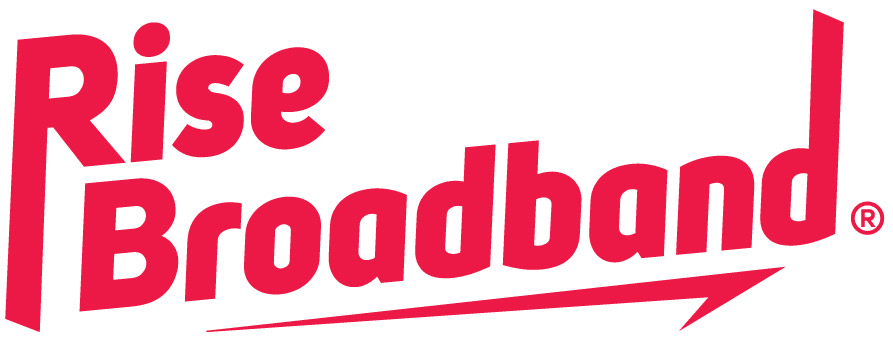
Rise Broadband, headquartered in Englewood, Colorado, is one of the largest fixed wireless internet providers in the United States. Serving over 200,000 homes and businesses across 16 states, the company has been a key player in delivering broadband to areas that often lack traditional internet infrastructure like cable or fiber.
Pros
- Great rural coverage
- Low latency
- High data allowances
Cons
- Relatively slow internet speeds
- Limited nationwide availability
- Bad weather can disrupt connectivity
Highlights
Available Speeds: 25-250 Mbps
Price Range: $25-$39.95/month
Data Cap: 250 GB for most plans
Contract Required: No
BBB Rating: A+
Unlike satellite or cellular internet, Rise Broadband relies on fixed wireless technology, which transmits a signal from nearby towers directly to an antenna installed at your home. Compared to traditional satellite internet, this allows for lower latency and often better performance, making Rise Broadband a popular choice in hard-to-reach areas.
Why We Like Rise Broadband
Rise Broadband offers a solid alternative for rural communities that often have to settle for slower or pricier internet options. If you live in an area with limited choices, Rise Broadband provides decent speeds and competitive pricing that can fit a variety of needs.
Unlike many rural providers, Rise Broadband doesn’t require long-term contracts. Additionally, its fixed wireless technology offers lower latency compared to satellite internet. However, performance can vary depending on your proximity to an access point, so it’s worth confirming the expected speeds in your area before signing up.
Plans and Pricing
Rise Broadband keeps things simple with three primary plans based on speed tiers. Availability and speeds depend on your location and how close you are to the nearest access point tower.
| Plan | Speed | Price | Data Cap |
|---|---|---|---|
| Basic – 25 Mbps | Up to 25 Mbps | $25/mo | 250 GB |
| Standard – 50 Mbps | 25-50 Mbps | $39.95/mo | 250 GB |
| Premium – 250 Mbps | Up to 250 Mbps | $45/mo | Unlimited |
The prices listed below include a $5 auto-pay discount, and prices rise by $10 after the first 12 months. Additionally, there is a $5 charge for every 10 GB of additional data used if you exceed your monthly limit.
25 Mbps – $25/mo.
Perfect for light browsing and occasional streaming, this entry-level plan offers download speeds up to 25 Mbps. It comes with a 250 GB data cap, but you can upgrade to unlimited data for an extra fee.
50 Mbps – $39.95/mo.
A step up for households with multiple users, this plan provides speeds between 25–50 Mbps. Like the 25 Mbps plan, it includes a 250 GB data cap unless you opt for the unlimited upgrade.
250 Mbps – $45/mo.
For families or power users, this plan offers up to 250 Mbps download speeds, unlimited data, and free installation. While marketed as unlimited, data management practices may apply during network congestion.
Read the full Rise Broadband review >>
Is Wireless Internet Worth It?

Wireless internet is a welcome addition to the home internet market, but whether it’s worth it depends on your needs and location. Cellular internet is great if you live in an area with strong network coverage, particularly 5G.
If you live off the beaten path and prioritize availability over lightning-fast speeds, satellite internet might be your best bet. Just keep in mind that it’s more sensitive to interruptions compared to other types of wireless internet, and be sure to factor in equipment costs.
Fixed wireless internet offers better latency than satellite. It works best for stationary users who can connect to a nearby access point.
That said, if you live in an urban or suburban area where fiber internet is available, it’s going to be the fastest, most reliable, and cost-effective option. Cable internet is another great choice for speed and consistency. You should really only consider wireless internet if you live in an area lacking both of these.
Be sure to check out our reviews of top internet providers to learn about all of the options you have available and find the best fit for your needs.
FAQs
It can be, depending on the type. Cellular internet offers impressive speeds that can rival or even surpass some home broadband options, especially in areas with strong network coverage. Satellite internet, while widely available, is usually slower with higher latency due to the long-distance signal travel. Fixed wireless is generally fast enough for most basic needs but might fall short for heavy streaming or large file uploads. Wired options like fiber or cable are usually going to be faster options.
Wireless internet can support some types of gaming, but it's not usually the best choice. Cellular internet, particularly with 5G, works well for casual gaming and even some online multiplayer titles, thanks to its low latency in well-covered areas. Fixed wireless might also work for some casual gaming, but it can struggle with high-demand multiplayer games. Unless it's Starlink, satellite internet is not ideal for gaming due to its high latency, which can cause frustrating lag.
It depends on your location and needs. Satellite internet, particularly Starlink, is ideal for very remote locations or people who frequently travel and need a reliable option almost anywhere. Cellular internet, especially with emerging C-Band 5G, is a fantastic choice for rural areas, offering speed and portability. Fixed wireless, while useful when there are no other options, is more of a last resort for areas with limited infrastructure. If you have access to fiber or cable, though, you’ll likely get faster speeds and better reliability with those options.
Continue reading:



